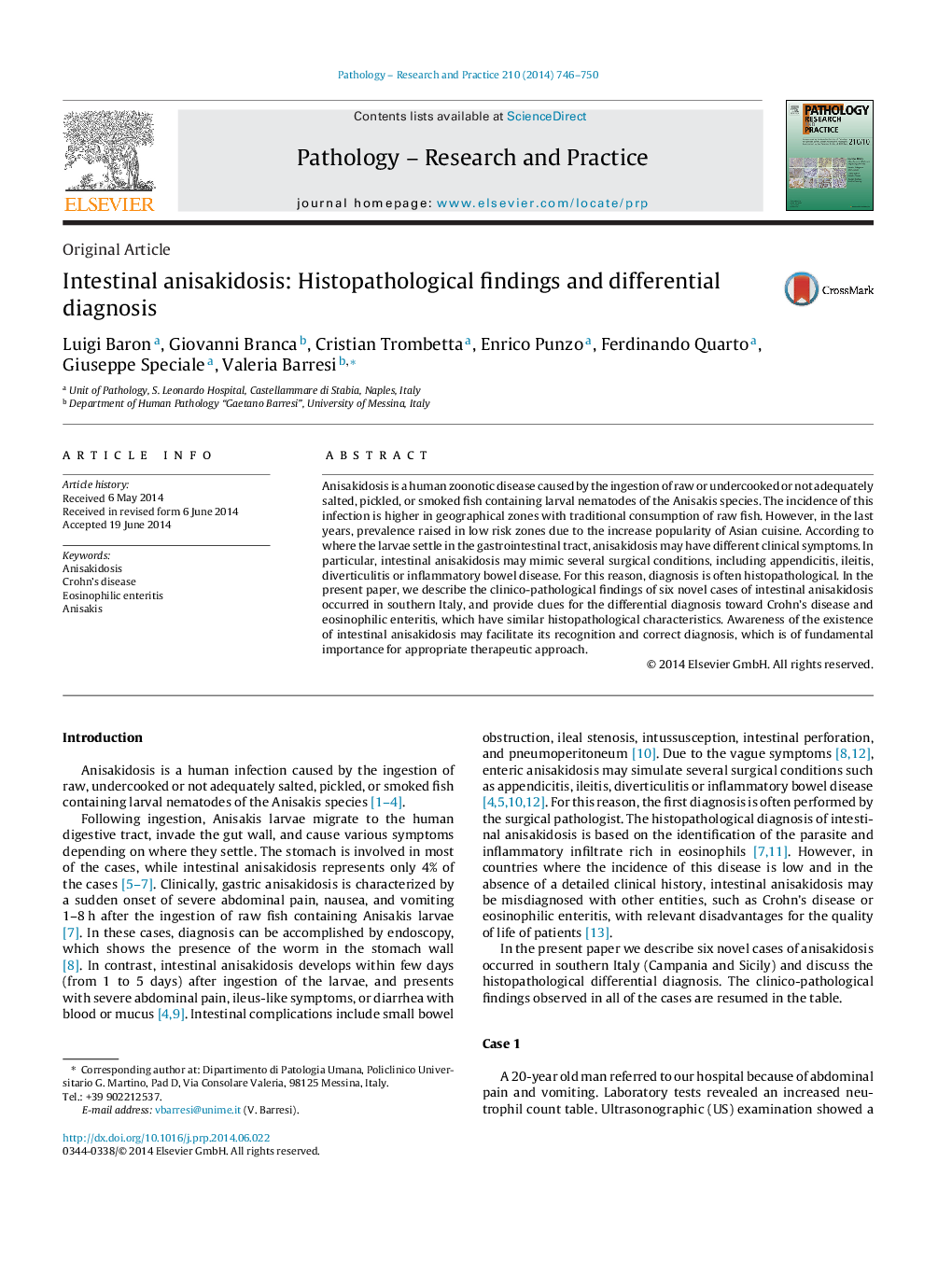| Article ID | Journal | Published Year | Pages | File Type |
|---|---|---|---|---|
| 2155383 | Pathology - Research and Practice | 2014 | 5 Pages |
Anisakidosis is a human zoonotic disease caused by the ingestion of raw or undercooked or not adequately salted, pickled, or smoked fish containing larval nematodes of the Anisakis species. The incidence of this infection is higher in geographical zones with traditional consumption of raw fish. However, in the last years, prevalence raised in low risk zones due to the increase popularity of Asian cuisine. According to where the larvae settle in the gastrointestinal tract, anisakidosis may have different clinical symptoms. In particular, intestinal anisakidosis may mimic several surgical conditions, including appendicitis, ileitis, diverticulitis or inflammatory bowel disease. For this reason, diagnosis is often histopathological. In the present paper, we describe the clinico-pathological findings of six novel cases of intestinal anisakidosis occurred in southern Italy, and provide clues for the differential diagnosis toward Crohn's disease and eosinophilic enteritis, which have similar histopathological characteristics. Awareness of the existence of intestinal anisakidosis may facilitate its recognition and correct diagnosis, which is of fundamental importance for appropriate therapeutic approach.
